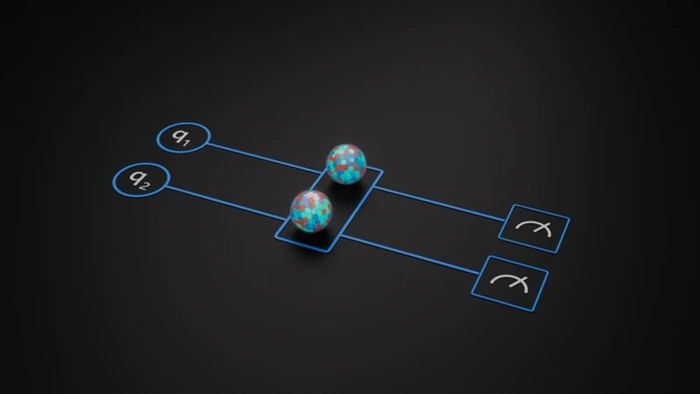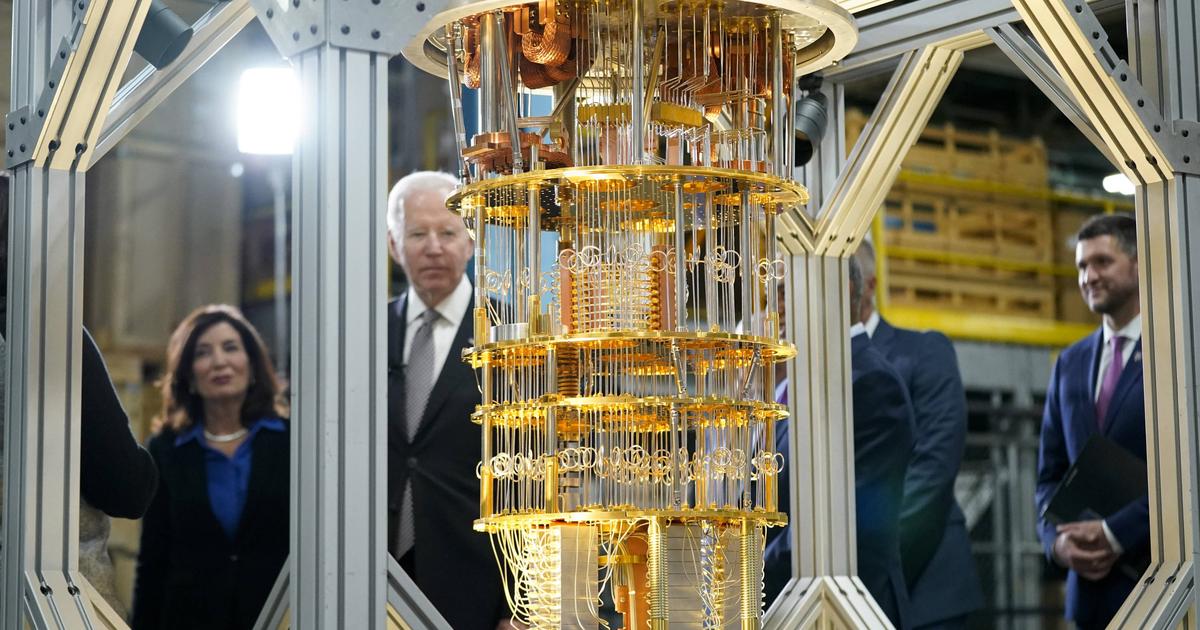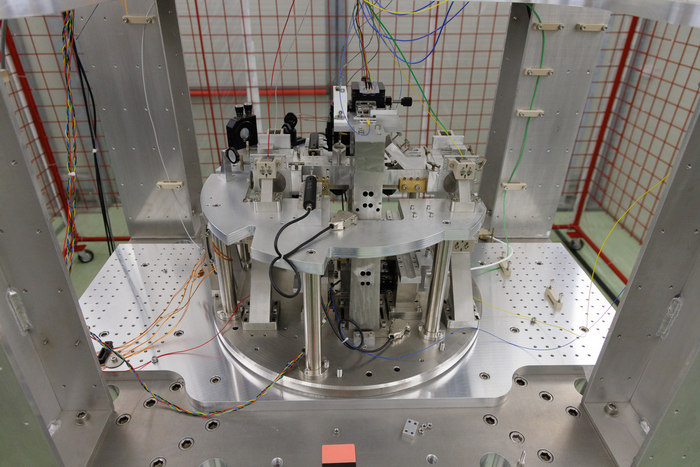One of the keys to quantum computing is the network. Having a computer with large capacities for each company or entity that needs it is not feasible, but reproducing the current scheme of cloud computing, with access to databases distributed throughout the world, makes the democratization and extension of this new processing system feasible. IBM's head of quantum computing, Jay Gambetta, announced on Tuesday that his company, which competes in the race with other giants such as Google, Microsoft, Intel and Amazon, will install the first European quantum data center with processors of more than 100 qubits in Ehiningen, Germany.
The goal of the complex, which will be operational next year, is to give access to useful quantum computing technology to companies, research institutions and government bodies. An example of these applications is the agreement between IBM and the biotechnology company Moderna, a pioneer in messenger RNA (mRNA) therapies and vaccines, such as the one developed against covid, to use quantum computing and artificial intelligence in this science that has saved the world from the pandemic.
Ehningen already has a Quantum City for three years, where the first commercial computer with this system in Europe, IBM Quantum System One, was installed. The second European will be completed in San Sebastian, also next year, by the hand of Ikerbasque (Basque Foundation for Science) There are four others in the USA, Japan, Canada and South Korea.
Sergio Boixo, physicist at Google Quantum AI: "We are very close to having a quantum computer without errors"
The center will serve IBM Quantum's European region and all work data will be processed within EU borders. The facility will be the second in the world of its kind after the company's complex in New York (USA). "The goal is to harness the power of quantum computing to solve some of the world's most challenging problems," said Jay Gambetta, vice president, IBM Quantum. The director of the multinational has explained that the processing capacity above 100 qubits is fundamental, since a lower potential would not provide a significant advantage over conventional computer systems. The processor will be the 127-qubit Eagle.
"The goal is to harness the power of quantum computing to solve some of the world's most challenging problems."
Jay Gambetta, Vice President, IBM Quantum
The quantum network of this company has more than 60 European organizations that have devices and programs, among which the Bundeswehr University, Deutsches Elektronen-Synchrotron (DESY), E.ON, the European Organization for Nuclear Research (CERN), Fraunhofer-Gesellschaft, the Center for Supercomputing and Networks Poznan (PSNC) and T-Systems stand out. IBM Quantum and the open source Qiskit program are used in more than 100 university classes in Europe.
IBM Quantum System One installed at the Fraunhofer-Gesellschaft research institute in Germany.HOLGER MUENCH
One of the most promising examples in the use of quantum technology and the also emerging generative artificial intelligence (AI) is biomedicine, where the capacity and speed of calculation of new systems can reduce drug development times. "We leverage innovations to deliver the greatest possible impact on people through mRNA medicines," said Stéphane Bancel, CEO of Moderna.
Biomedicine
"We are witnessing a revolution in the world of computing, driven by extraordinary advances in AI and quantum computing. These allow scientists to better understand how molecules behave and how they can facilitate the creation of entirely new ones," adds Dario Gil, senior vice president and director of IBM Research.
Most molecular models need three-dimensional calculations and measurements of a molecule to accurately predict many of its properties. This information can be obtained through simulations or laboratory experiments, but it is an imperfect and expensive process that can take months or years. Detailed structures of millions of molecules are now available, but there are trillions that can provide a solution to the deadliest diseases.
Research led by the Spanish César de la Fuente, Princess of Girona Award for scientific research in 2021 and professor of bioengineering at the University of Pennsylvania (USA), discovered 2,603 peptides (molecules formed by amino acids) with biological functions not related to the immune system and which, however, have anti-infectious activity. The research, published in Nature Biomedical Engineering, used artificial intelligence to locate in this huge and unknown field of proteins peptides with capabilities to attack pathogenic bacteria, modulate those with basic functions in the intestinal colony (microbiome) and with anti-infective potential.
Moderna will experiment with MoLFormer, an AI-based model from the multinational that helps predict the properties of a molecule and the characteristics of potential mRNA drugs. Moderna will apply this model to optimize the lipid nanoparticles that encapsulate and protect mRNA and the instructions for cells to act in infections, immuno-oncology, rare, cardiovascular and autoimmune diseases.
More information
What is quantum computing for?
It is just one of the most relevant examples of the confluence of quantum computing and artificial intelligence, but it is a huge field that goes from finance or internet security to the improvement of industrial processes or the space race.
But this requires networking, a race in which all the giants of computer services are involved. "We are building the elements that allow quantum computers to be connected, such as a repeater to connect them over long distances or the quantum memories that are needed in the intermediate components. We develop the necessary hardware and software for when quantum computers are ready," says Antía Lamas Linares, leader of the Center for Quantum Networking at Amazon Web Services (AWS). Other companies competing in the sector include IonQ, Quantum Circuits, Rigetti Computing and Honeywell.
Adel Al-Saleh, Member of the Board of Directors of Deutsche Telekom and CEO of T-Systems, highlights the importance of the European hub: "Having access to a quantum computing data center in Europe will help reduce the barrier to entry"
Data center expert Paul Bevan, research director at Bloor Research, believes initiatives like IBM's are on an unstoppable path. "We are starting to see a gradual rollout of conventional data centers and the rise of generative AI pushes the demand for compute space even further.
You can follow EL PAÍS Tecnología on Facebook and Twitter or sign up here to receive our weekly newsletter.
Subscribe to continue reading
Read without limits
Read more
I'm already a subscriber

/cloudfront-eu-central-1.images.arcpublishing.com/prisa/F4Z3YLOTMJAP7CF7IDJCK6JOVM.jpg)



/cloudfront-eu-central-1.images.arcpublishing.com/prisa/AYB5ZS7PUZHCZMYCZR33DXBJCA.jpeg)









